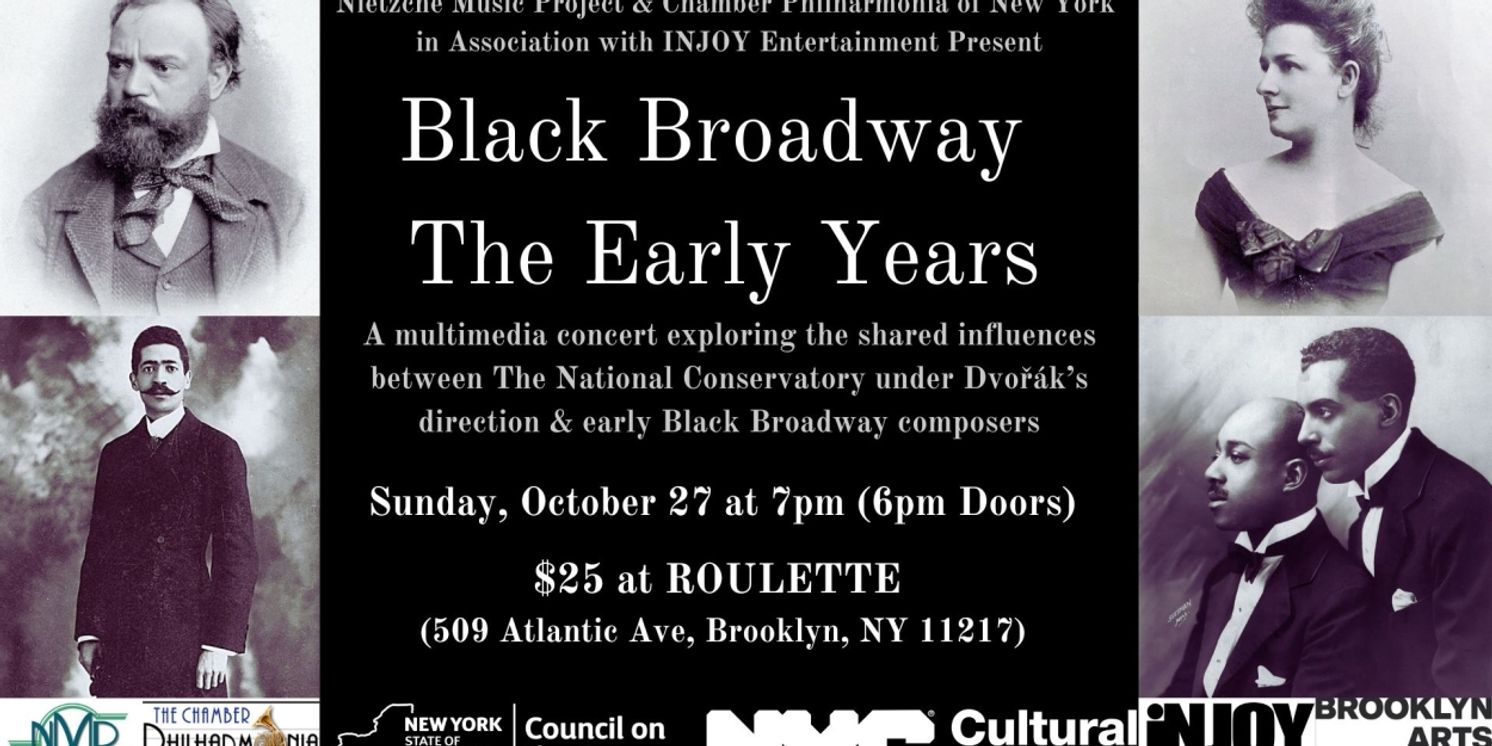BLACK BROADWAY: THE EARLY YEARS Comes to Roulette
The performance is on Sunday, October 27, 2024.

Nietzsche Music Project and Chamber Philharmonia of New York, in Association with INJOY Entertainment, will present the world premiere of BLACK BROADWAY: THE EARLY YEARS at Roulette (509 Atlantic Avenue, Brooklyn) on Sunday, October 27 at 7pm (doors open at 6pm).
BLACK BROADWAY: THE EARLY YEARS is a concert and multimedia exploration of the National Conservatory of Music of America's influences on early Broadway music under the leadership of Antonin Dvořák (director from 1892-1895). The performance pays special tribute to contributions by Black composers (Will Marion Cook, James Reese Europe, Noble Sissle & Eubie Blake) whose work influenced Broadway’s Golden Years through today.
In BLACK BROADWAY: THE EARLY YEARS, a 24-piece orchestra and guest vocalists Stacey Sherrell and Sailor Mayberry will perform Dvořák's American String Quartet intermixed with African American Spirituals In BLACK BROADWAY: THE EARLY YEARS, a 24-piece orchestra and guest vocalists Stacey Sherrell and Sailor Mayberry will perform Dvořák's American String Quartet intermixed with African American Spirituals, which inspired early Black Broadway composers, Dvořák, and multiple styles such as Gospel and Ragtime. Conductor and Music Director Tali Makell will present a multimedia video introducing the first act, focusing on Dvořák and the National Conservatory. Scholar and author Michael Dinwiddie will introduce the second act, focusing on early Black Broadway and featuring music by Will Marion Cook, James Reese Europe, Sissle & Blake.
The National Conservatory of Music of America (founded in 1885 by socialite Jeannette Thurber) was a racially and gender-integrated organization that trained prominent American composers and their teachers. Dvořák's belief that contributions from Black or Indigenous Americans and immigrants were essential to new American music shifted interest in musical innovations toward New York City. This was echoed in the music of early Broadway through to contemporary times. Several National Conservatory students produced all-Black musicals on Broadway and became mentors for Duke Ellington and other greats. One professor taught Aaron Copland and George Gershwin. Founder Jeannette Thurber championed women and people of color, supported inclusivity toward disabled people and offered full scholarships. She advocated for federal funding of the arts, which was common in Europe but unheard of in the United States at the time.
Through amplifying and honoring these significant historical figures who contributed to New York’s music and culture of yesteryear, many of whom are lesser-known to modern audiences, BLACK BROADWAY: THE EARLY YEARS aims to showcase shared links and influences from past New Yorkers to spark inspiration and foster connections between today’s New York creatives.
Black Broadway: The Early Years and Nietzsche Music Project Inc. programs are made possible in part by the New York State Council on the Arts with the generous support of the Office of the Governor and the New York State Legislature, the Greater New York Arts Development Fund of the New York City Department of Cultural Affairs, administered by Brooklyn Arts Council (BAC), The Buckhorn Association of Brooklyn, and our donors.
Videos

